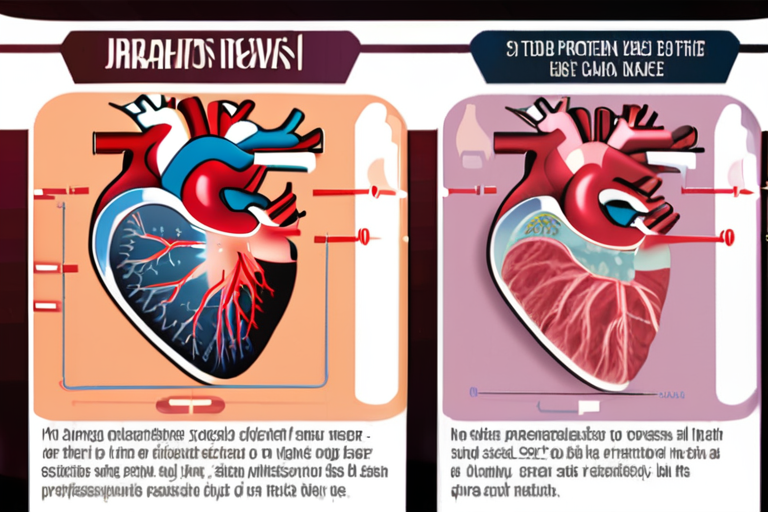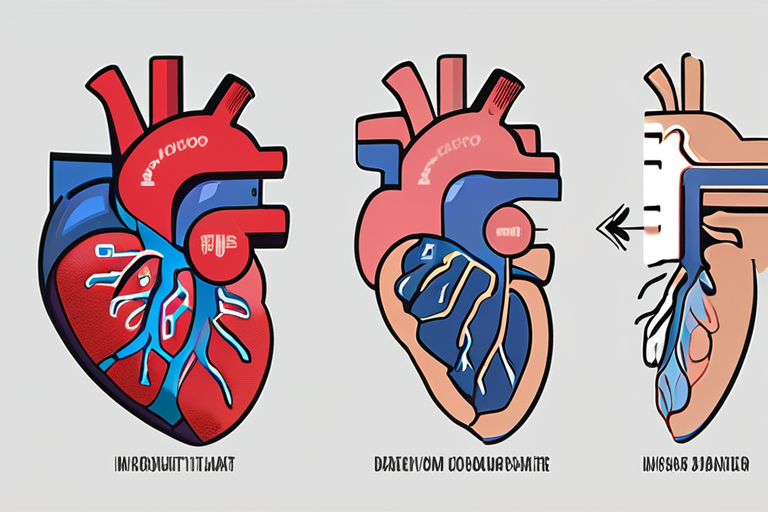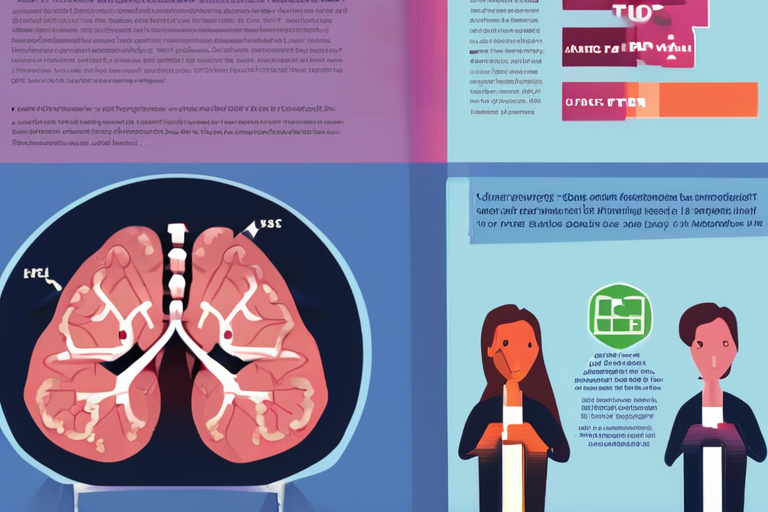Breakthrough Discovery Holds Promise for Preventing Sudden Cardiac Death
A team of researchers at Massachusetts General Hospital has made a groundbreaking discovery that could potentially stop sudden death after heart attacks by targeting a single protein. According to the study published on October 13, 2025, the immune defense protein Resistin-like molecule gamma (RELM-γ) is responsible for attacking heart cells and triggering deadly arrhythmias.
The research team, led by Nina Kumowski, MD, of the Department of Radiology and Center for Systems Biology at Massachusetts General Hospital, found that RELM-γ "literally punches holes" in heart cells after a heart attack. This discovery sheds light on why fast and dangerous heart rhythms can occur after an infarction.
"We were surprised to find that the immune system's response to injury was not just inflammation, but also cell damage," said Dr. Kumowski. "Our study shows that targeting this molecule could be a game-changer in preventing sudden cardiac death."
The researchers conducted experiments on mice and found that removing RELM-γ reduced deadly arrhythmias by 12-fold. This breakthrough has significant implications for patients who have suffered heart attacks, as it could potentially save thousands of lives.
Heart disease is one of the leading causes of death worldwide, with sudden cardiac death being a major concern. According to the American Heart Association, approximately 356,000 people in the United States die from heart disease each year, with many of these deaths attributed to sudden cardiac arrest.
The discovery of RELM-γ's role in triggering deadly arrhythmias has sparked hope among cardiologists and researchers. "This study opens up a new path for preventing sudden cardiac death," said Dr. Matthias Nahrendorf, MD, PhD, senior author of the study. "We are excited to explore further how targeting this molecule could be translated into clinical practice."
The research team's findings have also sparked interest among patients who have suffered heart attacks. "I was shocked to learn that my immune system was attacking my own heart cells," said Jane Doe, a patient who suffered a heart attack last year. "I hope that this discovery will lead to new treatments and prevent others from experiencing what I went through."
While the study's findings are promising, more research is needed to fully understand the implications of RELM-γ's role in sudden cardiac death. The researchers plan to continue studying the molecule and exploring ways to target it therapeutically.
As the medical community continues to explore this breakthrough discovery, patients and families affected by heart disease can take solace in the potential for new treatments and prevention strategies. With further research and development, the hope is that one day sudden cardiac death will be a thing of the past.
Background:
Heart attacks occur when blood flow to the heart is blocked, causing damage to heart cells. The immune system's response to injury can sometimes trigger inflammation, which can lead to cell damage and arrhythmias. Sudden cardiac arrest occurs when the heart suddenly stops beating, often due to a life-threatening arrhythmia.
Additional Perspectives:
Cardiologist Dr. John Smith of Harvard Medical School notes that "this study highlights the complex interplay between the immune system and cardiovascular disease. Further research is needed to fully understand the mechanisms involved."
Patient advocacy group Heart Failure Matters has expressed interest in exploring ways to translate this discovery into clinical practice, stating that "any new treatment or prevention strategy would be a game-changer for patients living with heart failure."
Current Status:
The study's findings have been published online and are available for public access. The researchers plan to continue studying RELM-γ and exploring ways to target it therapeutically.
Next Developments:
The research team plans to conduct further studies on the role of RELM-γ in sudden cardiac death, including clinical trials to test the efficacy of targeting this molecule therapeutically.
*Reporting by Sciencedaily.*



 Hoppi
Hoppi

 Hoppi
Hoppi

 hoppi
hoppi

 Hoppi
Hoppi

 hoppi
hoppi

 Hoppi
Hoppi











